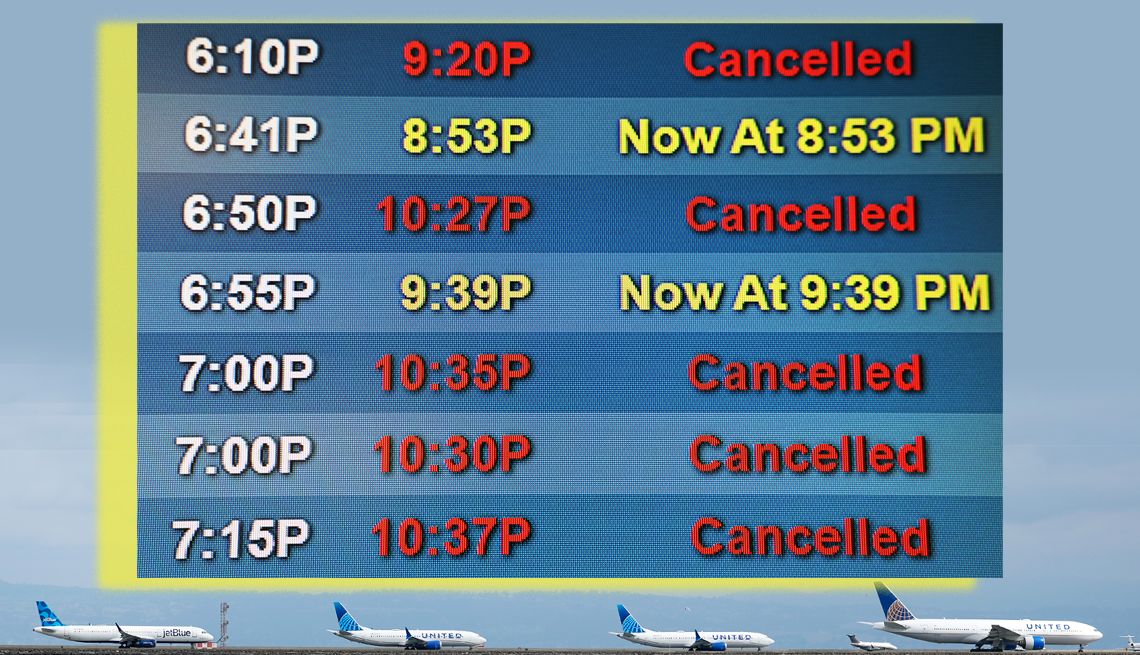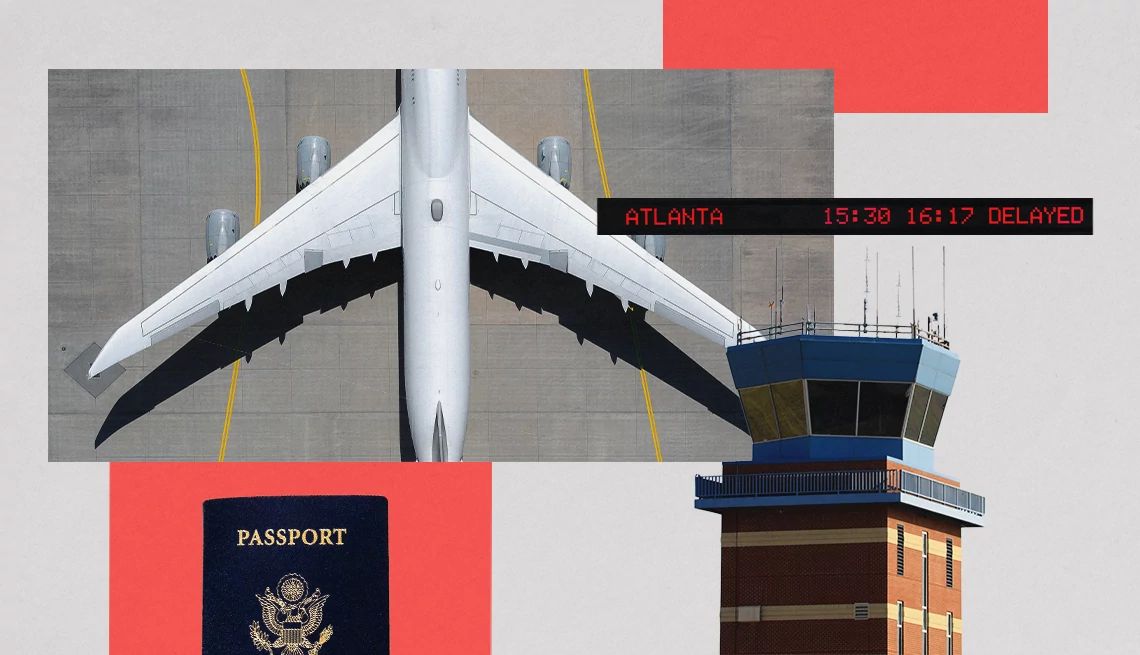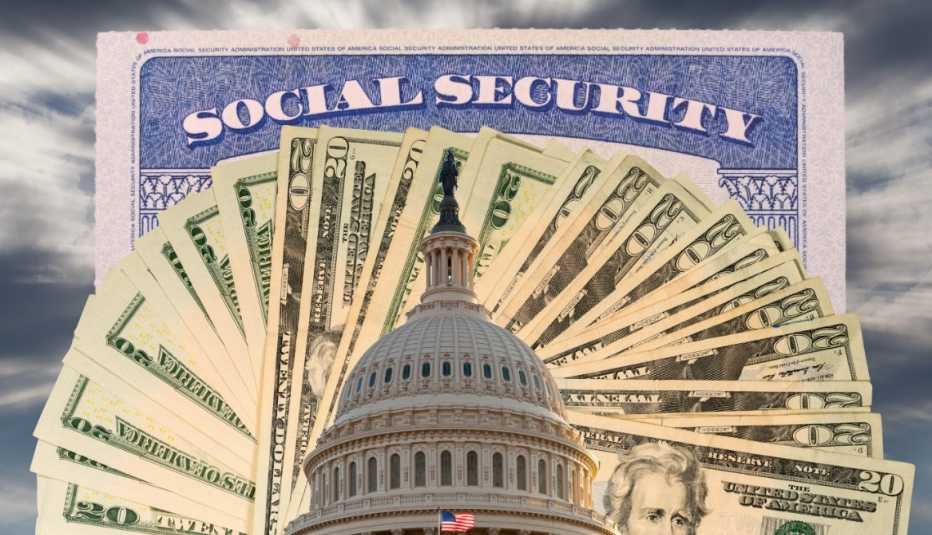AARP Hearing Center
In this story
Flight safety | Flight status | TSA lines | Mobility services | Delayed flight | What to do during delay | Canceled flight | Refunds | Travel options
About a week into the U.S. government shutdown that began Oct. 1, a systemic strain on the travel industry began to show. The problem: Air traffic controllers and Transportation Security Administration agents are among the federal employees classified as essential and so are expected to remain on the job without pay.
Delays due to control tower staffing issues have been reported at a dozen airports from coast to coast, resulting in thousands of delayed or canceled flights. Hollywood Burbank Airport in Los Angeles County had no air traffic controllers for over five hours on Oct. 6, 2025, resulting in ground delays of 2½ hours, on average.
It’s unclear when Congress will come to a fiscal agreement that would end the shutdown, and government airport workers’ first payday without a paycheck looms at the end of the month. Considering that an estimated 46 percent of people age 55 and older flew last year, according to Airlines for America’s Air Travelers in America survey, there are likely many older Americans with plane tickets and questions.
Here, experts give advice on what to expect when traveling by air during the government shutdown — and what to do if your trip is affected.
Is it safe to fly during the shutdown?
Between understaffing and stress, agents and controllers are working under less-than-ideal conditions. “Although they are professionals, they’re also human and have worries, like where the mortgage money is going to come from,” says Jeffrey C. Price, an aviation and aerospace science professor at Metropolitan State University of Denver. “It’s difficult to be thinking about one’s high-stress job while dealing with these significant worries.”
That said, the Federal Aviation Administration (FAA) and airlines have policies to accommodate staffing issues, which means the FAA reduces flow to match what the controllers can handle, resulting in delays and cancellations. “As of right now, it’s still perfectly safe,” says Tyler Hosford, a security director at International SOS, a health and security risk services company. If that changes, public-associated and private organizations will speak up, Hosford says.
For now, he is comfortable keeping the flight plans he and his family have over the next couple of weeks.
Airlines for America, the trade group representing some of the nation’s carriers, agrees it is safe to fly. In a statement on X, the trade group said, “ATC staffing shortages strain the system and cause flights to be spaced out, slowing down everything.”
What’s the best way to stay on top of my flight’s status?
“Typically, the airlines are very good at communicating. So I would make sure that you enable yourself to be communicated with,” says Sally French, a travel expert at NerdWallet. That means opting in to texts or calls and downloading and familiarizing yourself with the airline’s app. You can always check the FAA’s site for widespread delays, too, or simply Google your flight.







































































